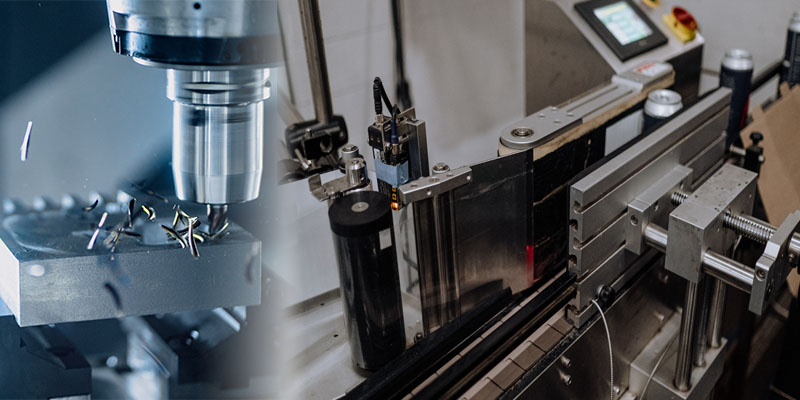In today’s rapidly evolving manufacturing landscape, industrial automation has become a cornerstone for achieving operational efficiency, cost-effectiveness, and superior product quality. Within the realm of automation, Computer Numerical Control (CNC) machining stands out as a transformative technology that has had a profound impact on various industries. With its ability to automate and streamline manufacturing processes, CNC machining has revolutionized industrial automation, ushering in a new era of precision, productivity, and customization. In this article, we will delve deeper into the substantial impact of CNC machining on industrial automation, exploring its benefits and the ways it has reshaped the manufacturing landscape.
Increased Efficiency and Productivity:
CNC machining has played a pivotal role in boosting efficiency and productivity in industrial automation. By automating complex machining operations, CNC machines significantly reduce the time and effort required to produce intricate parts and components. They can perform a wide range of tasks with speed and precision, resulting in shorter production cycles and increased output. CNC machines also minimize human error, ensuring consistent and accurate results across all production runs. This heightened efficiency and productivity translate into reduced costs, optimized resource utilization, and improved overall manufacturing performance.

Enhanced Precision and Quality:
One of the standout advantages of CNC machining is its unparalleled precision and the superior quality of the produced parts. CNC machines operate with meticulous accuracy, adhering to pre-programmed instructions that dictate every movement and machining action. This level of control eliminates human variability and ensures that each component is manufactured to the exact specifications outlined in the design. The result is exceptional part quality, precise dimensional accuracy, and consistent performance. With CNC machining, manufacturers can maintain tight tolerances, minimize defects, and deliver products that meet the most stringent quality standards, ultimately boosting customer satisfaction.
Flexibility and Customization:
CNC machining offers remarkable flexibility and customization capabilities in the realm of industrial automation. Unlike traditional machining methods, which often require extensive retooling and setup changes for different products or design iterations, CNC machines can be reprogrammed swiftly to accommodate new requirements. This agility allows manufacturers to respond rapidly to market demands, adapt to design changes, and fulfill customized orders efficiently. CNC machining empowers businesses to embrace mass customization, enabling them to offer a wide range of tailored products while maintaining cost-effective and streamlined production processes.
Integration with CAD/CAM Software:
The integration of CNC machining with Computer-Aided Design (CAD) and Computer-Aided Manufacturing (CAM) software has transformed industrial automation. CAD software enables designers to create intricate 3D models of parts, which can be seamlessly translated into CNC machine instructions. CAM software, on the other hand, optimizes machining paths and strategies, ensuring maximum efficiency and minimizing material waste. This integration streamlines the entire manufacturing workflow, from initial design to final production, eliminating manual errors and reducing time-consuming tasks. By leveraging CAD/CAM software in conjunction with CNC machining, manufacturers can achieve higher levels of accuracy, faster time-to-market, and improved cost-effectiveness.
Remote Monitoring and Control:
CNC machining has embraced the capabilities of remote monitoring and control, adding an extra layer of convenience and efficiency to industrial automation. With the advancement of network connectivity and the Internet of Things (IoT), CNC machines can now be remotely monitored and controlled. Manufacturers can access real-time data, monitor production processes, and make informed decisions without being physically present on the shop floor. Remote monitoring and control empower businesses with greater operational visibility, enable predictive maintenance, and facilitate timely troubleshooting, minimizing machine downtime and optimizing production schedules.
Conclusion:
The impact of CNC machining on industrial automation cannot be overstated. From its ability to enhance efficiency and productivity to its contribution to precision and quality, CNC machining has emerged as a transformative force in the manufacturing industry. With its integration with CAD/CAM software, its flexibility for customization, and the advent of remote monitoring and control, CNC machining continues to shape the future of industrial automation. As technological advancements unfold, CNC machining will undoubtedly remain at the forefront, driving innovation, unlocking new possibilities, and propelling manufacturers towards greater levels of success in the dynamic landscape of industrial automation.



